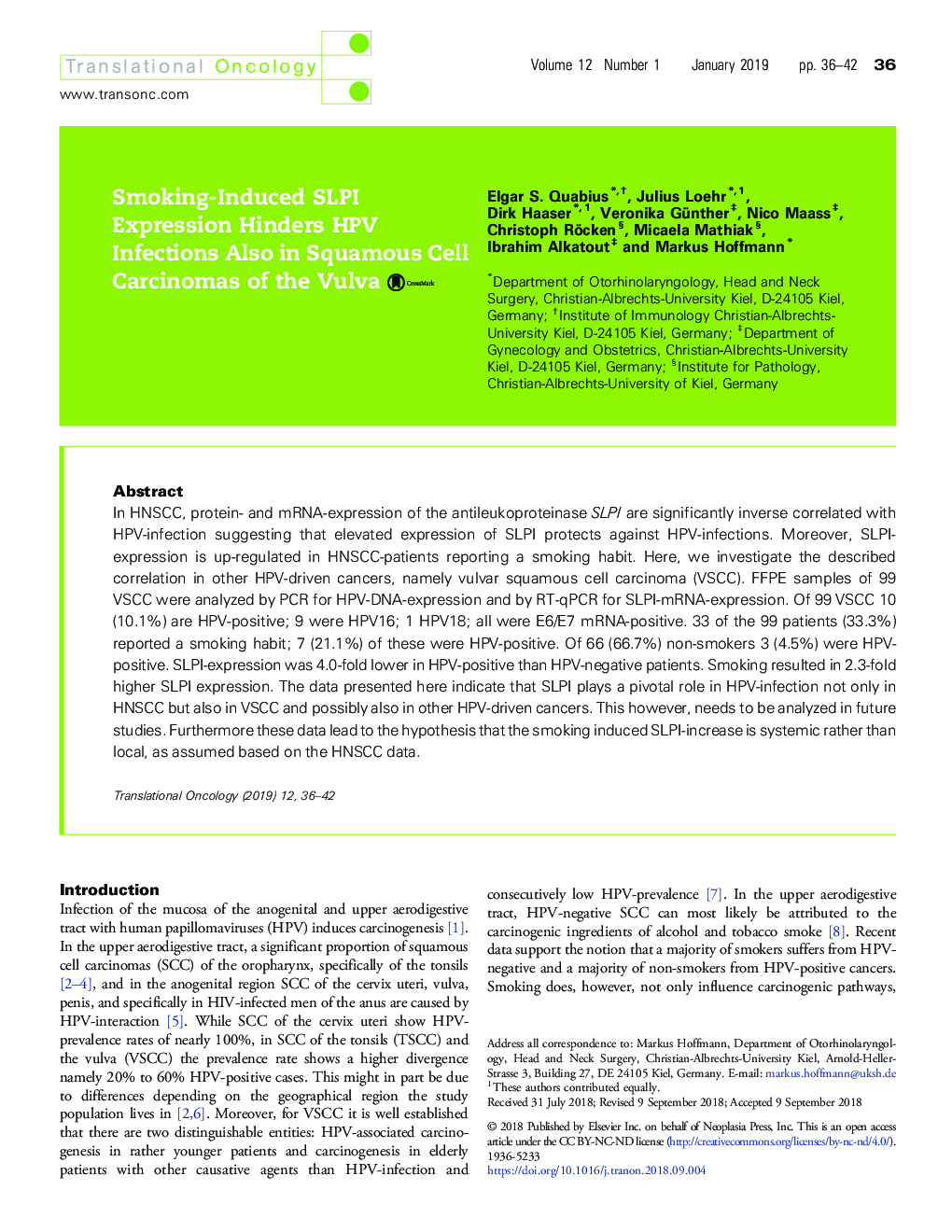| Article ID | Journal | Published Year | Pages | File Type |
|---|---|---|---|---|
| 11025899 | Translational Oncology | 2019 | 7 Pages |
Abstract
In HNSCC, protein- and mRNA-expression of the antileukoproteinase SLPI are significantly inverse correlated with HPV-infection suggesting that elevated expression of SLPI protects against HPV-infections. Moreover, SLPI-expression is up-regulated in HNSCC-patients reporting a smoking habit. Here, we investigate the described correlation in other HPV-driven cancers, namely vulvar squamous cell carcinoma (VSCC). FFPE samples of 99 VSCC were analyzed by PCR for HPV-DNA-expression and by RT-qPCR for SLPI-mRNA-expression. Of 99 VSCC 10 (10.1%) are HPV-positive; 9 were HPV16; 1 HPV18; all were E6/E7 mRNA-positive. 33 of the 99 patients (33.3%) reported a smoking habit; 7 (21.1%) of these were HPV-positive. Of 66 (66.7%) non-smokers 3 (4.5%) were HPV-positive. SLPI-expression was 4.0-fold lower in HPV-positive than HPV-negative patients. Smoking resulted in 2.3-fold higher SLPI expression. The data presented here indicate that SLPI plays a pivotal role in HPV-infection not only in HNSCC but also in VSCC and possibly also in other HPV-driven cancers. This however, needs to be analyzed in future studies. Furthermore these data lead to the hypothesis that the smoking induced SLPI-increase is systemic rather than local, as assumed based on the HNSCC data.
Related Topics
Life Sciences
Biochemistry, Genetics and Molecular Biology
Cancer Research
Authors
Elgar S. Quabius, Julius Loehr, Dirk Haaser, Veronika Günther, Nico Maass, Christoph Röcken, Micaela Mathiak, Ibrahim Alkatout, Markus Hoffmann,
